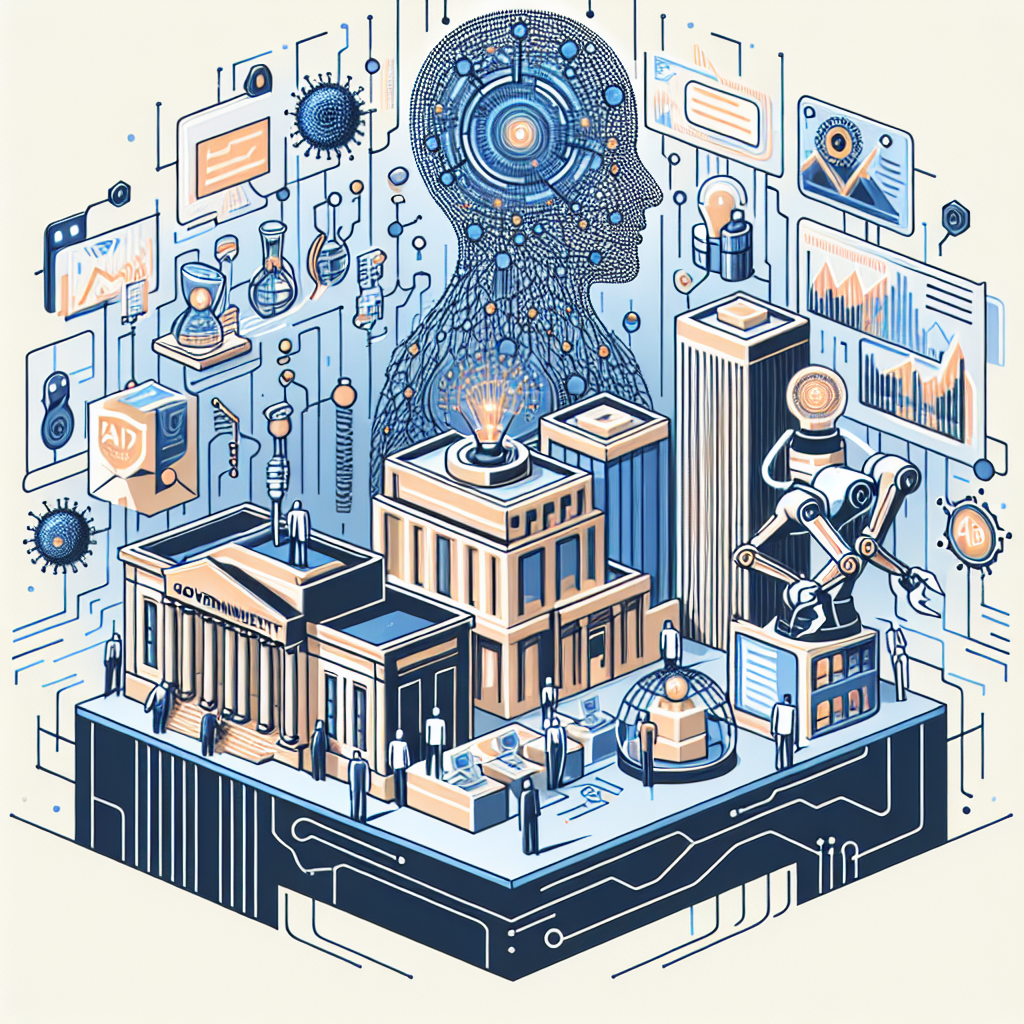Artificial Intelligence (AI) is revolutionizing the way government administrations operate, making processes more efficient and effective. From streamlining bureaucratic tasks to improving public services, AI has the potential to transform the way governments interact with citizens and manage their operations. In this article, we will explore the future of AI in government administration, discussing the benefits, challenges, and implications of this technology.
Benefits of AI in Government Administration
1. Increased Efficiency: AI can automate routine tasks and processes, freeing up government employees to focus on more complex and strategic work. This can lead to faster decision-making, improved service delivery, and cost savings.
2. Enhanced Data Analysis: AI can analyze vast amounts of data quickly and accurately, providing government agencies with valuable insights and predictive analytics. This can help agencies make better-informed decisions and improve policy-making.
3. Improved Citizen Services: AI-powered chatbots and virtual assistants can provide citizens with instant access to information and services, improving customer service and satisfaction. These tools can also help governments better understand citizen needs and preferences.
4. Fraud Detection and Prevention: AI can be used to detect fraudulent activities, such as tax evasion or welfare fraud, by analyzing patterns and anomalies in data. This can help government agencies save money and protect taxpayer funds.
5. Personalized Services: AI can analyze individual preferences and behaviors to provide personalized services to citizens. For example, AI can suggest relevant government programs or services based on a citizen’s specific needs.
Challenges of AI in Government Administration
1. Data Privacy and Security: AI systems rely on vast amounts of data, raising concerns about privacy and security. Governments must ensure that sensitive information is protected and that AI systems comply with data protection regulations.
2. Bias and Fairness: AI algorithms can perpetuate biases present in the data used to train them, leading to unfair or discriminatory outcomes. Governments must address bias in AI systems to ensure fair and equitable decision-making.
3. Accountability and Transparency: AI can make decisions that are complex and opaque, making it difficult to understand how decisions are made. Governments must ensure that AI systems are accountable and transparent to maintain public trust.
4. Skills and Training: Implementing AI in government administration requires specialized skills and training. Governments must invest in training programs to ensure that employees have the knowledge and expertise to use AI effectively.
5. Regulation and Oversight: As AI technology advances rapidly, governments must establish regulations and oversight mechanisms to ensure that AI systems are used ethically and responsibly.
Implications of AI in Government Administration
1. Governance and Regulation: AI will challenge traditional governance structures and regulatory frameworks, requiring governments to adapt to the changing technological landscape. Governments must develop policies and regulations to govern the use of AI in public administration.
2. Workforce Transformation: AI will reshape the roles and responsibilities of government employees, requiring new skills and competencies. Governments must invest in workforce development programs to prepare employees for the future of AI.
3. Citizen Engagement: AI can improve citizen engagement by providing personalized services and more efficient government processes. Governments must leverage AI to enhance citizen participation and collaboration.
4. International Cooperation: AI transcends national boundaries, requiring governments to collaborate on AI governance and regulation. International cooperation is essential to address the global challenges posed by AI in government administration.
5. Ethical Considerations: AI raises ethical questions related to privacy, bias, and accountability. Governments must consider ethical implications when implementing AI in public administration and ensure that AI systems are used responsibly.
FAQs
1. What are some examples of AI applications in government administration?
Some examples of AI applications in government administration include chatbots for citizen services, predictive analytics for policy-making, fraud detection algorithms for financial oversight, and virtual assistants for government employees.
2. How can AI improve government services?
AI can improve government services by automating routine tasks, analyzing data to inform decision-making, providing personalized services to citizens, and enhancing efficiency and effectiveness across government operations.
3. What are the challenges of implementing AI in government administration?
Challenges of implementing AI in government administration include data privacy and security concerns, bias and fairness issues, accountability and transparency challenges, skills and training requirements, and the need for regulation and oversight.
4. How can governments address bias in AI systems?
Governments can address bias in AI systems by ensuring that training data is diverse and representative, testing AI algorithms for bias and discrimination, and implementing fairness and accountability measures in AI systems.
5. What are the implications of AI in government administration?
The implications of AI in government administration include governance and regulation challenges, workforce transformation opportunities, citizen engagement benefits, international cooperation requirements, and ethical considerations that must be addressed.

